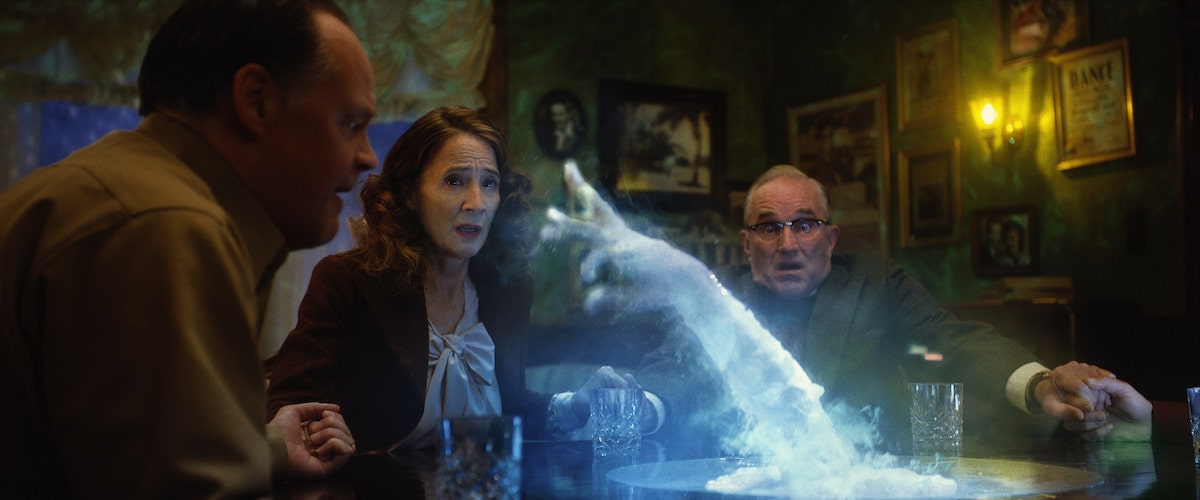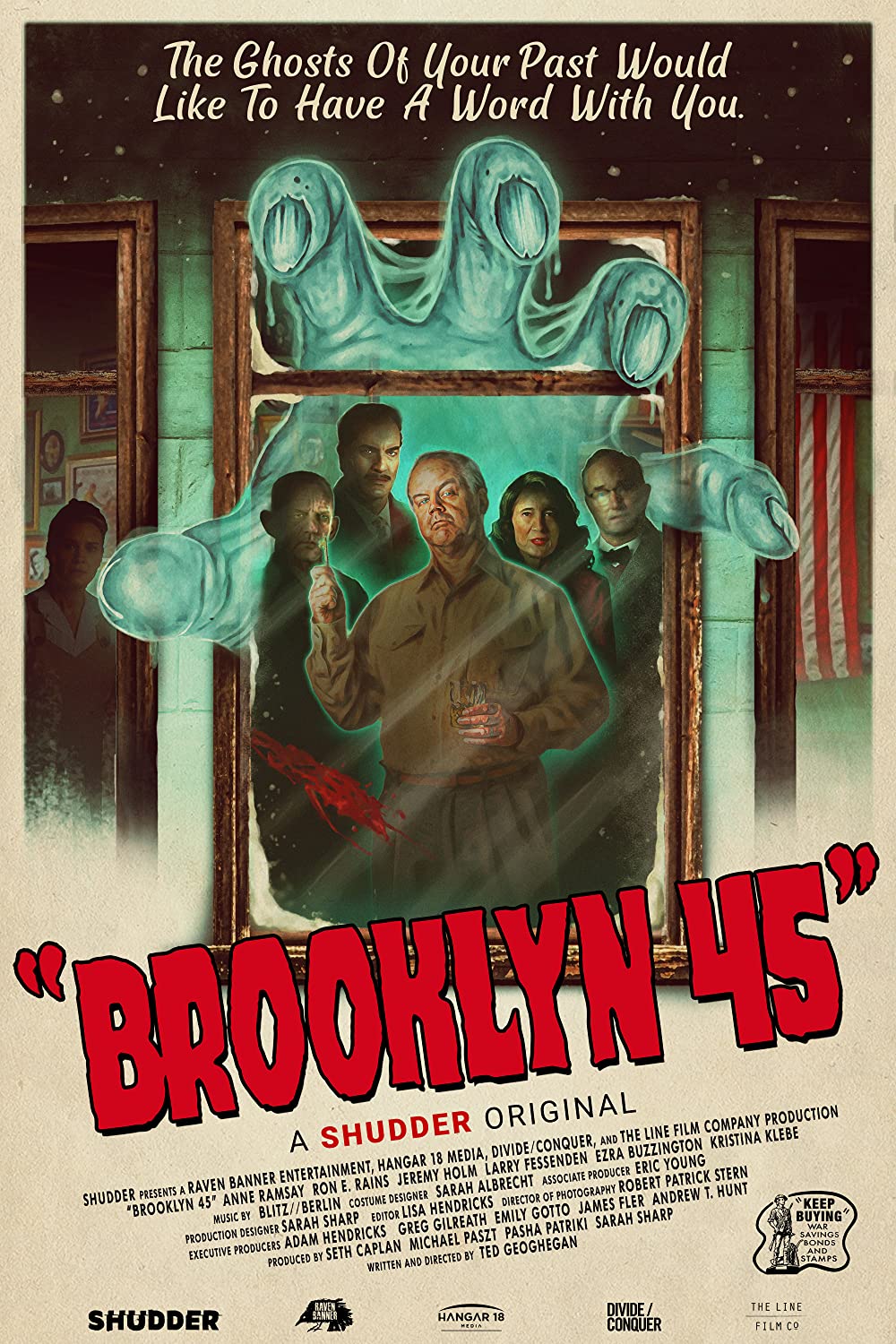A group of lifelong friends gathers together at a friend’s brownstone apartment, all battle-scarred from their experiences in the recently-ended Second World War (as the title “Brooklyn 45” makes clear). They have all done things in wartime they are not proud of, and they all suffer emotional/physical trauma. They have been summoned by their friend Clive (Larry Fessenden), whose wife died by suicide just a month before. After the catching-up chit-chat, he springs a request: He would like to host a séance to make contact with his dead wife. He’s been reading up on the occult, and believes in the scientific veracity of the sources. His friends, practical military people, are resistant and skeptical, but he insists: they must help him. They must!
This is the premise of Ted Geoghegan’s latest movie. “Brooklyn 45” takes place entirely on one set, the front room of the brownstone, and it unfolds in real time like a play. Billed as a supernatural horror film, “Brooklyn 45,” which Geoghegan also wrote, is more than a strict genre label would suggest. Ghosts and spirits appear, and weird things are indeed summoned, but “Brooklyn 45” is really a meditation on grief and the unfinished business of war as experienced by a group who struggle with adjusting to peacetime. After facing the horrors of Nazi-occupied Europe, how are they supposed to just go back to normal life? After four years of viewing all Germans as Nazis, it’s hard to just turn that off.
Marla (Anne Ramsay), injured by a bomb explosion, was one of the military’s most feared and respected Nazi interrogators. She just married Bob (Ron E. Rains), a meek-and-mild man sneered at by the rest of the men for his lack of combat experience. Archie (Jeremy Holm) is an intimidating tree trunk of a man, a war hero whose reputation is tarnished by accusations of a terrible and unforgivable war crime. There will be a trial. The ends don’t justify the means, after all. Archie is gay, and openly so, tolerating the ribbing he gets about it from his friend Paul (Ezra Buzzington), an upright military commander, still in uniform, and still suspicious of all “Krauts.” Nazis lurk in every corner, and Paul has suspicions about the German-American woman who runs a grocery store down the street (Kristina Klebe). Apparently, Clive’s dead wife shared Paul’s paranoia and spent her final days obsessed with Nazi spies hiding out in America, hiding out on her block.
Geoghegan and his ensemble cast dig into all this thorny complexity instead of running away from it or ironing it out into a black-and-white binary. Each character is wracked by moral ambiguity and ethical compromise to some degree. Marla is now a happy wife, yet the ghost of her interrogator self—she freely used torture—hovers around her. Archie maintains his upright hero persona, but his reputation has taken a hit. He’s ashamed of himself and can’t admit it. During the war, Paul’s constant rage had a socially acceptable space to express itself. Now, without an enemy, he is lost. And Clive is a wreck. Larry Fessenden has been doing excellent, nuanced work for years (I loved him in the recent “Jakob's Wife“), and his torment in “Brooklyn 45” is almost difficult to watch. Drowning in alcohol, ravaged by grief, he is the center around which the rest swirl with worry, irritation, and terror at what his séance has unleashed.
The script could use some trimming. The run-time is a bit bloated, and it takes a while to get things going. But this isn’t 100% a negative (it gives you time to get to know the characters). The friendship bond is palpable. You feel the affection and closeness. This is crucial in establishing the story’s emotional structure. “Brooklyn 45” is a ghost story, yes, but the ghost isn’t just Clive’s dead wife summoned from the beyond. It’s the ghost of innocence, of ideals, of certainty, the ghost of who they were before the war as opposed to who they are now. With no enemy left to fight, they’re all lost.
“Hitler’s dead. You’re fighting a pile of ashes!” one of them exclaims.
How to live with this knowledge is easy for some, impossible for others. What we’re seeing, ultimately, is combat trauma managed by alcohol and denial. “Brooklyn 45” has its scare shocks and jolts of terror, its confrontation with unexplainable phenomena, but its interest lies in the psychological and emotional, and Geoghegan has created a space where all of it can be looked at, or run from, acknowledged or denied. The pile of ashes is a mile high.
On Shudder now.




















